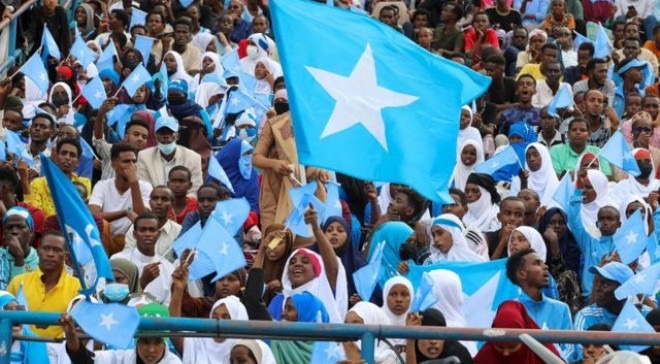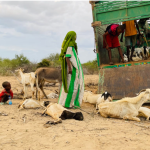Introduction
Colonization significantly altered the political systems of much of the Southern Hemisphere, replacing traditional governance based on local values with Western colonial systems. The newly independent states that emerged in the 1950s inherited this western style of government, imposed by colonial powers. However, this adopted governance began to dissolve after the Cold War. Not only did the bipolar interstate system of global order break down, but in many regions, the very foundations of the state itself collapsed.
Somalia is one of the states that experienced State collapse. State collapse is a more complex phenomena than mere rebellion, terrorism, coups, or civil unrest. It signifies a situation in which the governance structure, legitimate authority, rule of law, and political order have disintegrated, necessitating reconstitution in some form.
The collapse of established orders, particularly the state, often catalyzes a retreat to ethnic nationalism as the most viable identity. One hypothesis worth exploring is that, upon state collapse, order and power devolve to local groups or become contested. This scenario unfolded in Somalia following the state’s collapse in 1991, where power dynamics shifted frequently as local entities contended with attempts to re-establish governance. In this context, Somaliland claimed self-independence, Puntland emerged as a semi-autonomous region, and other various groups controlled portions of Somalia through their own militias. During this period, the Somali state, as a legitimate and functioning entity effectively ceased to exist.
This Article seeks to offer a nuanced understanding of the efforts, challenges and opportunities involved in rebuilding Somalia as a cohesive and functional state and ultimately proposing potential pathways for effective state-building.
Reconstruction of the Somali State
To reconstruct the collapsed state of Somalia, there have been Series attempts at reconciliation through conferences in neighboring countries, including Djibouti in June and July 1991, Addis Ababa in March 1993, Sodere from November 1996 to January 1997, and Cairo in December 1997. Unfortunately, non these peace processes aimed at bringing stability and reviving the Somali state proved to be successful.
Then came, The Somalia National Peace Conference (SNPC), also known as the Djibouti Conference. This were chain of peace talks held in Arta, Djibouti, from April 20 to May 5, 2000. Unlike previous reconciliation efforts, the Arta Conference featured extensive participation from unarmed civic leaders, including intellectuals, clan elders and religious leaders, and members of the business community. The outcome of these meetings was the Arta Declaration and the establishment of the Transitional National Government (TNG), which marked the first Somali government since 1991 to achieve a degree of international recognition, restore law and order and reclaim Somalia’s seat at the United Nations and other regional bodies. This was the first government of Somalia’s Third Republic.
However, the TNG, led by President Abdiqasim Salad Hassan, faced significant opposition from the Somalia Reconciliation and Restoration Council (SRRC), a rival movement composed of warlords from various regions. This internal opposition was just one of many challenges the TNG would encounter. Had the TNG not faced such resistance from fellow Somalis, Somalia’s journey toward state-building could have been on a much more positive trajectory.
In an effort to reconcile the Transitional National Government (TNG) with its adversaries in the Somalia Reconciliation and Restoration Council (SRRC), the Intergovernmental Authority on Development (IGAD) initiated a national reconciliation process before the TNG’s mandate had expired. The Somali National Reconciliation Conference was held in Eldoret, Kenya, in October 2002, resulting in a ceasefire agreement signed by 24 faction leaders. This agreement emphasized the need to create a federal structure, reversing the unitary system established at the Arta Conference. Although the federal model, while initially externally supported, continues to evolve in response to Somalia’s unique context.
In September 2003, another Somali National Reconciliation Conference was convened in Nairobi, Kenya. This conference received endorsement from the IGAD summit of 2003 and support from the African Union, the Arab League, and the United Nations. During the conference, the Transitional National Government (TNG) and the Somalia Reconciliation and Restoration Council (SRRC) reconciled, leading to the formation of a new united entity called the Transitional Federal Government (TFG). The outcome was the formal adoption of a Federal Transitional Charter. This was followed by the inauguration of a Transitional Federal Parliament in August 2004 and the election of a president later that year, with Abdullahi Yusuf Ahmed assuming leadership of the new government.
This shift to federalism introduced both opportunities and unforeseen challenges in the quest for a viable state in Somalia. While it was perceived as a way to address Somalia’s deep ethnic fragmentation, reversing the established political framework from a unitary system to federalism proved contested and complex in its implementation. This decision initiated a new political challenge in Somalia, which became evident at later stage between the federal member states and the federal government, highlighting the instability of their working relationship.
Challenges of Federalism
In 2012, the adoption of a new provisional constitution mandated the establishment of federal member states in Somalia. With Puntland as the only existing federal state, new challenges emerged as clans across various regions vied for leadership in the soon-to-be-formed states. While federal member states were established, this also introduced the risk of foreign interference. Neighboring countries and distant nations began influencing these new entities and meddling in Somalia’s domestic politics. It is well-known that countries like Kenya and Ethiopia have sought to influence the federal government through Jubaland, Somaliland, and Southwest State. The external influence in Somali politics remains a concern that requires strong institutions and clear sovereignty frameworks. In addition to neighboring countries, foreign nations such as the UAE have also engaged with the federal government, particularly through Puntland. This internal interference stems from the weaknesses inherent in the federal structure imposed upon Somalia.
This situation has often led to frictions between the federal government and the federal member states. Such tensions not only undermine the processes of state-building and peace-building in Somalia but also threaten to reverse the successes achieved over the past two decades. The influence of foreign powers exacerbates these challenges, making it crucial for Somalia to strengthen its federal structure and foster unity among its states to safeguard its progress.
Pathways to Successful State Building in Somalia
Successful state-building in Somalia requires a multifaceted approach that prioritizes inclusive and local ownership. Engaging various clans and communities in the decision-making process is essential to foster trust and cooperation among the diverse population. This can be achieved by trying to fix grievances that happened as a result of clan power sharing at both federal and state levels. Establishing a strong, representative governance structure that incorporates the voices of all stakeholders can help mitigate tensions and promote a sense of belonging. Additionally, investing in education and capacity-building initiatives will empower local leaders and institutions, enabling them to address the needs of their communities effectively. However, not Somali led the federalism is, yet Somalia has adopted a federal structure and majority of the population seem to be confused about. A way forward could be socializing the federalism to the Somali population.
Another critical pathway is enhancing security and stability through effective law enforcement and conflict resolution mechanisms. Strengthening the national security forces while promoting community policing can help restore public confidence and reduce violence. Furthermore, fostering economic development by encouraging investment and creating job opportunities will contribute to social cohesion and diminish the appeal of extremist groups. By combining inclusive governance, security enhancement, and economic growth, Somalia can lay a solid foundation for lasting peace and sustainable state-building.
BY: Mohamed Ali Shire
Political Scientist and Researcher





